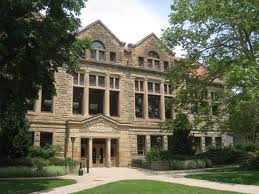Since the economic downturn, many experts on the academic work force have worried that professors will delay retirement (given that their investment accounts took hits), and that an already-tight job market will get even tighter. InsideHigher Ed reports that:
“A new study takes more of a long-term view, but ends up confirming those fears. Examining trends at a large private university from 1981 to 2009, the study finds faculty members are likely to take much longer to retire. And unlike the more recent studies focused on the impact of the economic downturn, this study covers time periods in which retirement accounts would have been up and down several times. The dates in the study come before and after 1993, the last year in which colleges and universities were permitted to enforce a mandatory retirement age of 70. (An abstract of the study appears here. The paper, by Sharon L. Weinberg and Marc A. Scott of New York University, is in Educational Researcher.)
“While Weinberg and Scott stress that they have studied data only for one university (and urge similar research at other institutions), they also suggest that the logic behind lifting mandatory retirement for higher education was flawed. Most other employers were barred by law in 1986 from using mandatory retirement, but colleges were given an exemption for a while, based on concerns that delays in retirement would make it difficult for colleges to hire people in emerging disciplines, and to diversify their faculties. But Weinberg and Scott note that these arguments became considerably weaker when the National Research Council issued a study in 1991 predicting that those things would not happen.
“At most colleges and universities, few tenured faculty would continue working past age 70 if mandatory retirement is eliminated,” says the NRC report.
“At the university studied, that was decidedly not the case. Among the findings were that while 11 percent of faculty members at this university during the era of mandatory retirement worked after age 70 (with special arrangements), 60 percent of faculty members now work beyond the age of 70, and 15 percent retire at the age of 80 or older.”
Read more: http://www.insidehighered.com/news/2013/08/02/new-study-shows-difficulty-encouraging-professors-retire#ixzz2axu56PPC
Inside Higher Ed